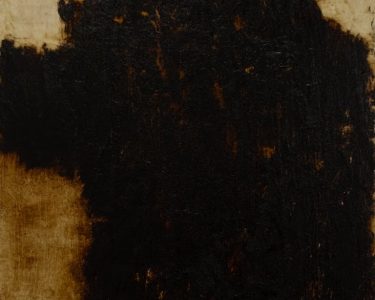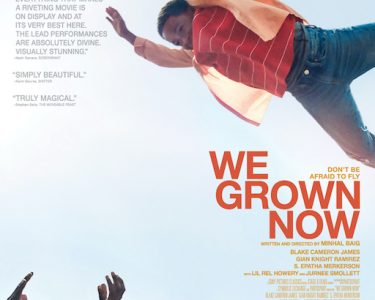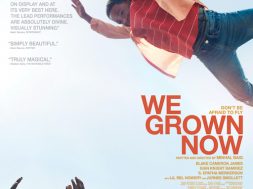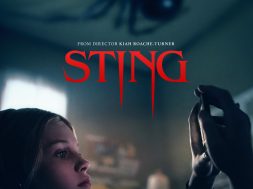DIRECTOR CHRISTINA YOON ON THE PRESSURES OF BEAUTY
In a society focused on looks, the pressure to fit in and conform to society’s definition of beauty can be a psychological burden. Director Christina Yoon’s ‘Mirror’ focuses on a Korean immigrant with a severely scarred face who visits a black market hospital in Queens, New York to seek plastic surgery. We had a chance for a brief chat with this talented filmmaker.
What inspired you to make this film?
I have always been fascinated by the masks people put on for society, the often alienating difference between one’s inner self and outer appearance. As a Korean American woman, I felt this on many levels as a teenager—of feeling outside of both Korean and American beauty standards, and feeling “other.” I wanted to show the painful struggle of dealing with self-hatred and not feeling comfortable in your own skin. It often doesn’t matter how attractive you might be or how others perceive you, it’s still a journey to learn to accept the person looking back at you in the mirror.
Your film relies on the inner emotional turmoil of the character and your actress did an amazing job. Can you tell us about the casting process?
It seemed daunting at first because we had to cast from a very small pool – specifically New York based Korean actors who were fluent in Korean. This limited our search, but we actually found several incredible actors for our lead roles. Spring Kim is a Korean American actress out of NYU Tisch. She came in to audition, and from the start I was impressed with her ability to physically embody the character. She withdrew into herself – using her hair to cover her face and averting her eyes. The way she spoke even changed, and it seemed she had come to understand Yeona psychologically.
The male assistant is played by Taeho Kwak, an amazing Korean actor who was luckily based in New York at the time taking English classes and getting acting training. The female assistant, played by MeeWha Alana Lee, is a very active Korean American actress in the New York scene. We loved how she was able to bring a level of comedic absurdity to the role while still being rooted in her character.
How did you decide on the look of the film?
The story itself is dramatic and at times thrilling, but it was important to me to not sensationalize Yeona’s struggle in the directing. This led me to wanting to take a stylized but restrained approach with mostly static camera, mediums, and wides. I wanted to keep the visual style dark and internal with a cold color palette and to use handheld only when it was most needed to be in motion with Yeona. Towards the end, the directing of camera does become more dramatic and nightmarish, but I never wanted it to seem like the camera was reacting to things in the moment. The visual language was always about quiet isolation and a kind of creeping dread.

So much of society is driven by image and beauty what kind of impact would you like your film to have with audiences?
I hope audiences can find deeper understanding through Yeona’s journey and all the darkness, yearning, and growth that comes with it. While the film aims to question the norms of feminine and Asian beauty standards, it’s not necessarily anti-plastic surgery—I believe every woman has a right to do what she wants to her own body. Instead, it asks audiences to value the importance of mental and emotional health, healing and self-love, before seeking surgery as a solution to something that’s actually internal. One day, Yeona may very well get surgery to remove her scar if it’s what she wants, but it will be on her own terms after she’s found more peace within.
What did you learn about yourself doing this film?
Mirror was an ambitious film for the time and budget that it was made at. I learned about what I can tackle as a writer and director, my strengths and weaknesses, and what I was most interested in as a storyteller. I learned that there can never be enough preparation, especially detailed preparation, to get what it is you really want. I am so grateful that I was ambitious in my story and vision so that I could truly challenge myself and learn from my mistakes. Through the experience of making the film, I became confident in directing Korean actors and working with the Korean language even as someone not fully fluent. The experience solidified my love for directing and gave me the tools I needed to continue on to my future projects.
Mirror is currently being showcased in the film festivals circuit.
About Christina Yoon

Director/Editor Christina Yoon is a Korean American filmmaker who after graduating from NYU, worked in South Korea directing branded content for Johnnie Walker and in creative development for Korean music videos and web dramas. Christina’s short films have been official selections at numerous film festivals including Los Angeles Asian Pacific Film Festival, Fargo Film Festival, and many more. She is currently in pre-production for her Columbia thesis film, which won the prestigious Katharina Otto-Bernstein short film grant and will shoot in South Korea next year. Yoon likes to make stylized dramas and genre films exploring trauma, alienation, and identity.















